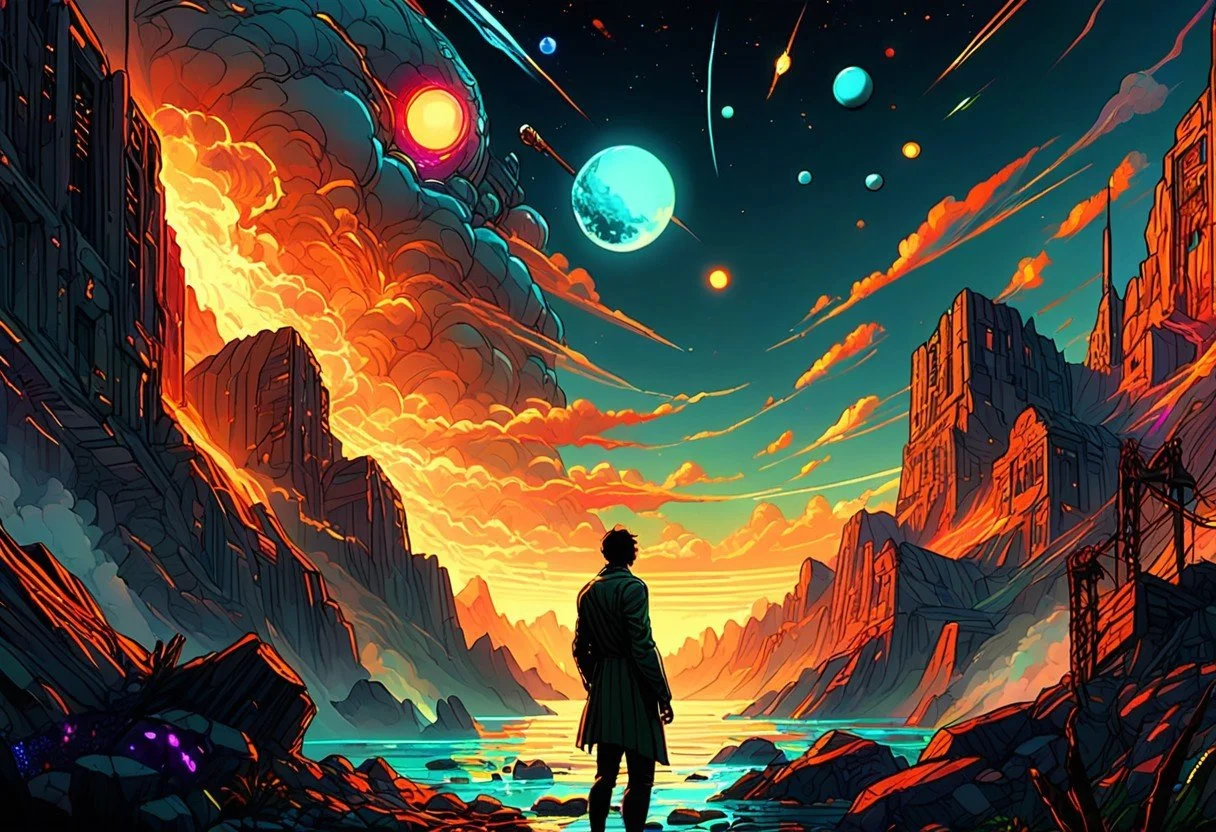Generative AI
“It’s a matter of shifting your mindset from ‘what do I think of it?’ to ‘what else could I think of it?’ How else could I approach this? This sort of thinking transforms AI from dead weight, to a sail, and then ultimately to an Iron Man suit. Your imagination is the only limitation, but imagination is a function of exposure.”
I have found generative AI to be a fascinating and versatile tool, particularly for ideation and creativity. I most frequently use it to “talk out” ideas or work through mental logjams, but I have also started a creative side-project using AI art to illustrate a fictional narrative told through Instagram posts.
AI has dramatically increased the quality of my work, and in the comparatively short time that I have employed it, the sophistication of the tools has increased dramatically. I have created a number of custom GPTs that focus on Implementation Mapping, the Gibbs Reflective Cycle, and Writing, and I use either Claude or ChatGPT’s “Monday” nearly every day.
Ideation and Generative AI Resources
Grant, Adam. Think Again. New York: Viking, 2021.
Mollick, Ethan. Co-Intelligence: Living and Working with AI. New York: Portfolio/Penguin, 2024.
Utley, Jeremy, Perry Klebahn, and David Kelley. Ideaflow: The Only Metric that Matters. New York: Portfolio, 2022.
Utley, Jeremy, and Hendrik Werdelin. Beyond the Prompt. (podcast). https://www.beyondtheprompt.ai/
Woods, Geoff. The AI-Driven Leader: Harnessing AI to Make Faster, Smarter Decisions. 2nd Edition. Boston: AI Thought Leadership LLC, 2024.
AI Policy
I encourage the use of AI with my students, and frequently create assignments using GPTs, art/music generators, or both.
In this course, AI is embraced as a tool that can support and enrich our shared learning journey. Just as my teaching is grounded in respect for your fundamental human dignity, so too is my approach to AI rooted in empowerment and ethical use. I expect that you will use AI in ways that are honest and constructive. We'll be using AI music generators as creative tools to explore how technology shapes musical identity and expression.
Enhanced, Accelerated Course Design
For the summer sessions in 2025, I worked closely with Claude and ChatGPT’s Monday to refine two of my general education courses, MUS 1620 Traditional and Popular Music of Japan (for the online session) and MUS 1650 Coding Musical Soundscapes. I also developed a new concept for MUS 1600 Human Dimensions of Music, involving a sociological look at music and identity, using field work simulations. I typically use summer courses to prototype new approaches, and my Freshman Seminar DIS 1000 similarly grew from a MUS 1600 concept. However, the development cycle literally went from semesters to weeks, as I was able to workshop and troubleshoot ideas in greater depth and detail.
DIS 1000 Music, Resilience, and Life Skills: Interactive Quiz
For several semesters, I had been dissatisfied with the students’ ability to define and differentiate the elements of music (timbre, texture, rhythm, melody, and harmony). We addressed each of them in a series of creative or analytical projects, but by the summative song analysis, I wasn’t seeing the fluency I expected. I decided to reinstate formative quizzes, but I wanted them to be both silly, to defuse any test anxiety, and also interactive, to provide immediate feedback for wrong answers. I thought it would be interesting to use a structure like the old “Choose Your Own Adventure” books, and built the basic structure with MS Forms.
ChatGPT 3.5 wrote in a sickening flowery style, which I thought would be perfect for creating an over-the-top adolescent adventure, but also provide several opportunities to demonstrate that 1) GPT writing should never be accepted uncritically, and 2) everyone can tell when you’re using it. Once we had translated the concepts into a haunted house narrative, I illustrated it with art from CivetAI. The result was surprisingly effective: many students answered every question correctly on the first try, and while I still need to work on getting them to the Analyze level of Bloom’s Taxonomy, I have kept these quizzes in the syllabus.



